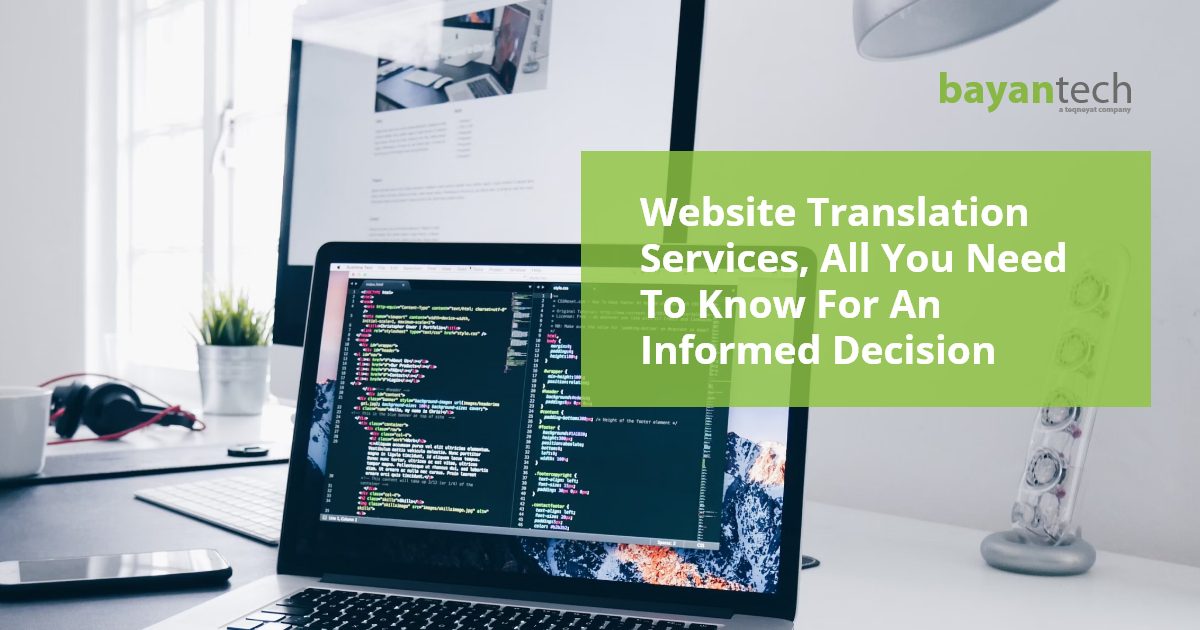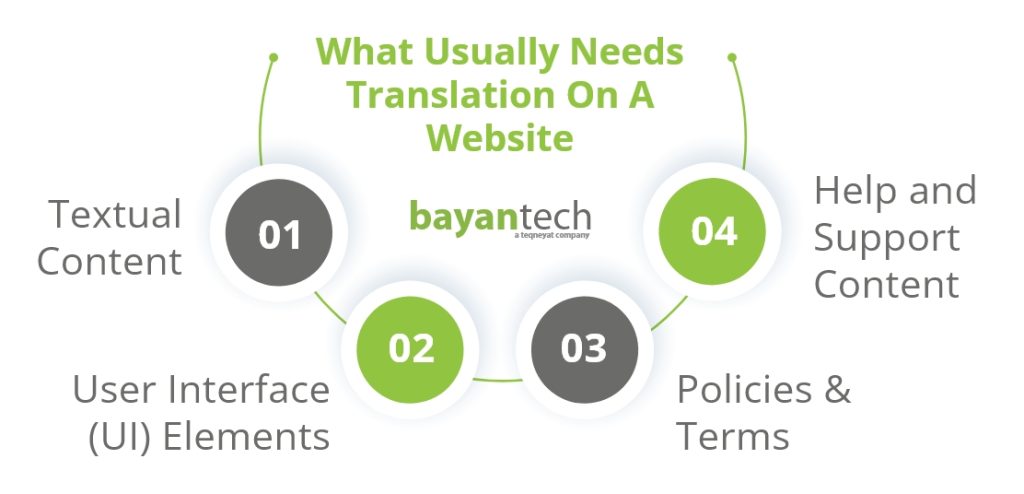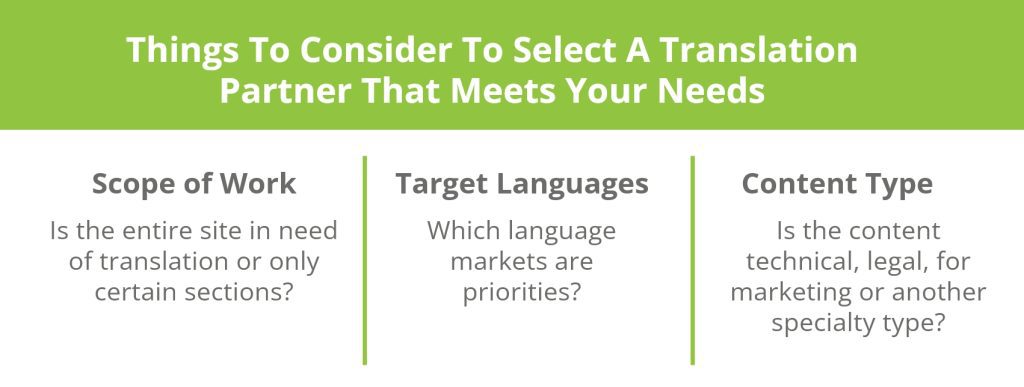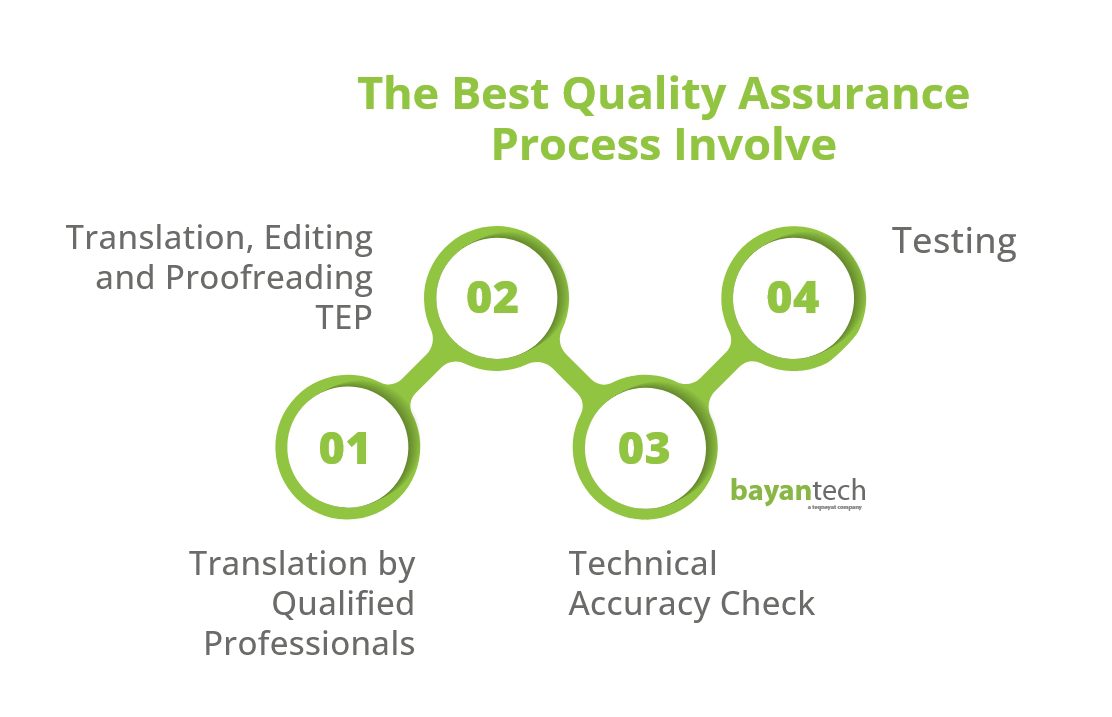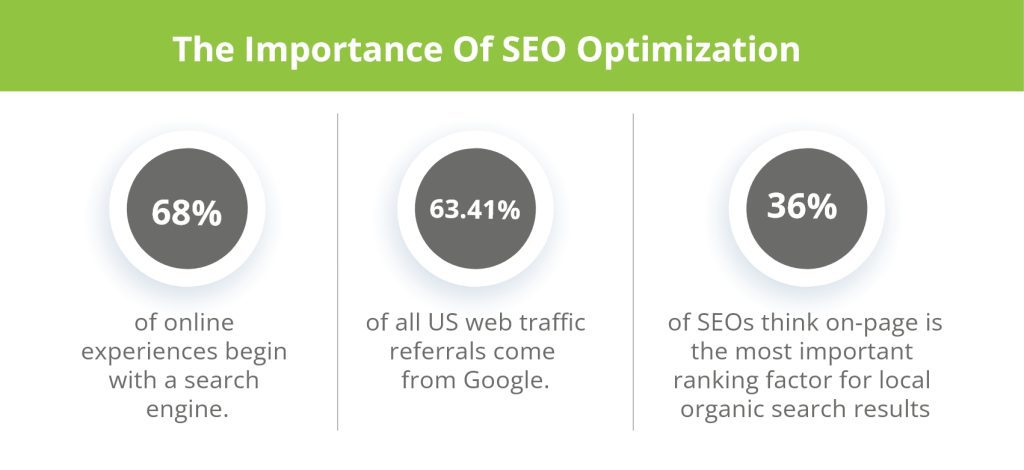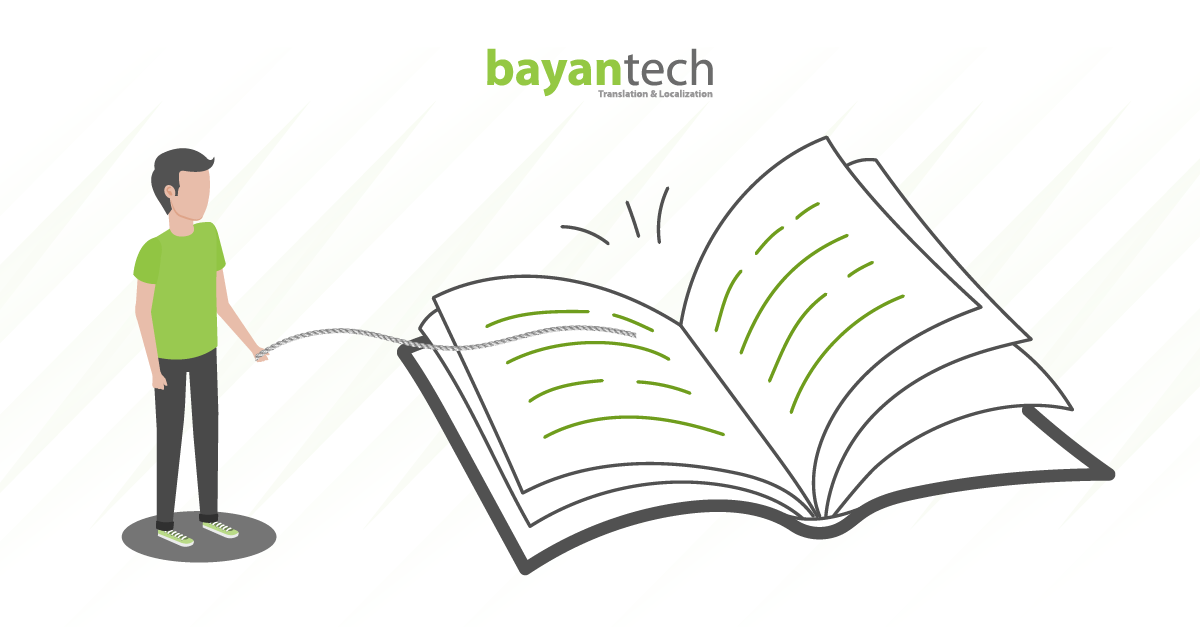Every company’s website serves as the initial touchpoint for engaging potential customers from around the globe. And for this to successfully happen, the content of this website must maintain effective communication with target users, one that transcends both language and cultural barriers
This is the main reason why companies that aim to engage with audiences across different linguistic backgrounds prioritize making their content accessible in the native languages of their target markets through translation.
But is it that easy to find a professional website translation service provider?
In this post, we’ll walk you through the essential factors to consider when choosing a translation service provider, helping you make a well-informed decision that will significantly boost your global presence.
Translation Service For Websites: What You Need To Know
Understanding the importance of website translation services and multilingual websites is the first step toward finding the right translation service for your site because only then you can truly recognize the importance of finding a professional, high-quality one that delivers the best return on investment.
So, what usually needs translation on any website?
- Textual Content
- User Interface (UI) Elements (Labels, buttons, menus, and any other interface components that guide user interaction.)
- Terms of Service, Privacy Policies, disclaimers, and other legal texts that must comply with local laws and be understandable to users.
- Help and Support Content
The goal is to create a website content with a fully engaging experience that evokes the same emotions and reactions from international users as it does from your local audience. And definitely, this requires that your website translation service provider be it a company or a freelance translator possess the necessary skills beyond just linguistic capabilities.
How To Choose The Best Website Translation Services
Website translation services are usually offered by language service providers (LSPs), which can either be a company or an individual that provides a variety of language services.
When evaluating options, it goes without saying that opting for a provider offering a full suite of services including localization and desktop publishing is often the ideal choice. This is because, in most cases, you will require more than just translation to ensure your website is fully prepared for multilingual users.
1. Assess Your Needs
The initial step in any project involves thorough planning and assessment. Taking time at this stage to understand your requirements can significantly reduce costs and timelines down the line as it ensures a clear scope of work. So, we want you to consider the following key questions:
- 👉First, consider whether you need to translate your entire website or just specific sections. This decision will help you understand the scope of your translation needs, whether you need a large agency with rigorous project management or if a single translator can manage your project efficiently.
- 👉Second, identify the target languages. Choosing an LSP specialized in language pairs you target, those languages and cultures will allow for specialized localization techniques to make content truly resonant for each market.
- 👉Finally, consider the type of content that requires translation. Is it technical, legal, marketing, or another field? This will guide you in choosing an LSP that specializes in the specific type of content you need to translate.
2. Evaluate The Provider’s Domain Expertise
Yes, it is understandable that you should be looking for providers who specialize in website translation as they can better understand the technical aspects involved in the translation process. However, domain expertise is equally indispensable to deliver accurate, appropriate translations.
Providers who work with a team of professional translators possessing relevant background knowledge in your domain ensure a strategic understanding of your business and products and guarantee your content is correctly conveyed between cultures and markets.
So, always inquire about the provider’s experience in your specific field or domain – whether it be technology, healthcare, finance etc.
Examples of Fields That Require Industry-Expert Providers:
- Medical and Healthcare
- Legal
- Technical and Engineering
- Financial and Banking
- Marketing and Advertising
- Technology and Software
3. Check for Quality Assurance Processes
When choosing a website translation service provider, it is also important to check if the provider has a strict quality assurance process in place. But the question is… how would you know?
Well, you can always ask the provider to outline their translation quality control steps. And by the way, leading LSPs publicly share their quality control procedures on their website for accountability. These typically involve:
- Multiple review stages by specialized translators, editors, and proofreaders to catch any errors or inconsistencies. (A Three-step Review process known as TEP)
- Feedback cycles to make necessary corrections before final delivery.
Also, inquire about the qualifications of staff working on your project. Are team members native speakers with relevant domain expertise?
And don’t forget to make sure they also conduct website quality testing to verify that your website functions smoothly and that content displays correctly in each language, without any lag or display issues.
The Best Quality Assurance Process Involve
- Translation by Qualified Professionals
- Translation, Editing and Proofreading TEP
- Technical Accuracy Check
- Testing
4. Review Technological Tools The Provider Uses
Why do we say this is important for you to consider? Well, actually the use of advanced localization technology and a translation management system can significantly improve quality while optimizing time and costs, a winning combination for all clients.
Leading translation providers invest heavily in Computer-Assisted Translation (CAT) tools, translation memory systems, and project management software. Tools like the translation memory leverage previous translations to maximize consistency and minimize redundant work and this means you are never charged for the repeated segments.
CAT tools also integrate style guides and terminology glossaries to further maximize the overall quality of the translation. So, make sure you never overlook this.
5. Consider Turnaround Times and Scalability
You need a provider that can deliver high-quality translations quickly, especially if you’re working with tight deadlines.
But scalability is also equally important. As your business grows and enters new markets, your language service provider should be able to keep pace, scaling their services to meet your expanding needs.
Look for a provider with a robust team of professionals who can handle large volumes of translation requests efficiently with faster turnarounds.
They should also have the capability to manage several projects simultaneously, ensuring quality isn’t compromised for speed, and provide efficient file transfer methods to streamline the process.
6. Evaluate The Provider’s SEO Expertise
It is no secret that search engine optimization (SEO) plays a crucial role in the success of any website. But, did you know that the same SEO practices that work for one language may not be effective for another?
That is why it is important to choose a language service provider that understands the nuances of SEO in different languages and cultures. A provider with SEO expertise can help you to identify the right keywords, meta tags, and content structure that are relevant to your target audience and increase your website’s visibility in search engine results pages.
By doing so, you can ensure that your translated and localized website is accurate, culturally appropriate, and optimized for search engines in your target markets. Ultimately, this can lead to increased traffic, higher engagement, and more business opportunities in your target markets.
7. Compare Pricing Structures
Admit it or not, cost will always be a factor, but should not be the sole decision driver. Balance pricing with other critical criteria we discussed to ensure you get the best value for your investment.
And with this, also consider the following:
- Look for Transparency
Choose providers with clear and detailed pricing, which may include per-word rates, hourly rates, or fixed project prices.
- Beware of Low Prices
Extremely low prices can be a warning sign. Such deals might result in poor-quality translations that could require costly revisions later.
- Ask About Additional Fees
Check for hidden costs, such as charges for rush services, specialized technical translations, and so on. Being aware of all potential fees helps prevent unexpected expenses.
Understanding these factors allows you to make a more informed choice that balances cost with quality and find the best website translation services.
bayantech Is Your Ideal Choice For Website Translation Services
Let’s make the choice easier and help you through your needs.
bayantech is your ideal choice for website translation services. With over a decade of experience in the translation industry, we offer specialized website localization services that cater to your unique business needs.
We have a team of experienced translators, editors, and proofreaders who ensure you deliver accurate culturally appropriate, and relevant content translation to your target audience.
Being ISO certified, we have a comprehensive quality assurance process that ensures that you receive high-quality translations that meet your specific business needs.
Contact Us now or Request a Free Quote!

